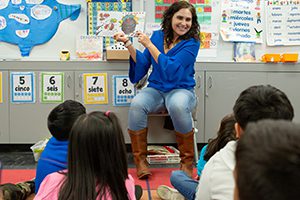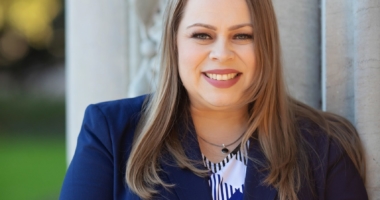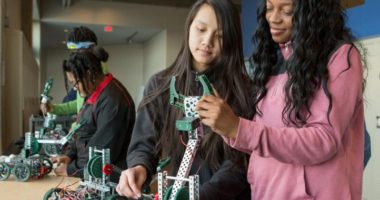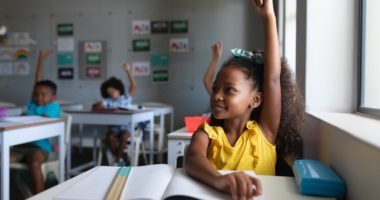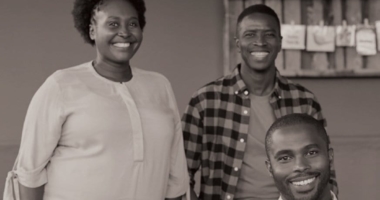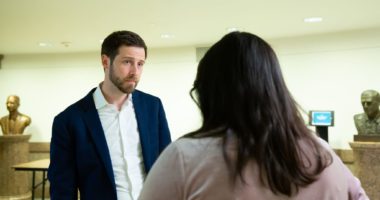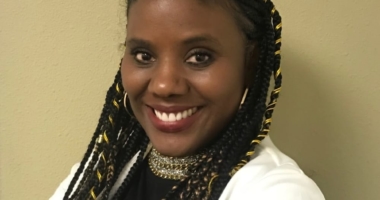Policy and Mindsets Must Change to Truly Prepare Students for College & Career Success
When I look out at my classroom, I reflect on my last eight years as a teacher. I think of all of the faces, lessons, heart to hearts, and the “Wow, I could’ve done a lot better” moments. I remember all the students I’ve had the privilege to teach and swell with pride, joy, and sometimes sorrow. Some students stay connected; some I never hear from again. Though I have these children for only one year, I pour as much of myself into them as I can, and hope that it is enough to support them as they continue through school and onto the rest of their lives.
I am the eldest of five children, born to teenage parents, and a first-generation college graduate holding both a bachelor’s and master’s degree. Even from a young age, I knew that the life I was living was not what I wanted. I wanted to make my family proud and ensure that generations that came after me would have a better life. At 16, I realized that I wanted to be a teacher, because I am passionate about all children getting the educational opportunities they deserve.
My parents graduated from Austin and Milby high schools in Houston ISD in the early ‘90s. While my mother was able to get a medical assistant certification, due to her lack of opportunities and support in high school, she did not feel smart enough to pursue further education. And so, she made many sacrifices to enroll me in a Catholic school with the hope that this would put me on a different trajectory from hers.
Even then, I recognized that my educational experience was vastly different from that of my parents, my cousins, and my neighborhood friends. I frequently had homework, felt challenged, and had the support at school to apply to and enroll in college. I was adequately prepared and graduated within four years, making me the first to do so among my family and friends.
My own experience may have prepared me for college, but I realized during my first year of teaching middle school in HISD how many more deserving students were never provided the same opportunities that I was. That’s when I became determined to support all of my students to reach their full potential.
As a teacher, I experienced the same system my mom experienced in her youth. Though I receive students in my classroom on various reading levels ranging from first grade to eighth grade, I hold high expectations, provide ample support and encouragement, and routinely see tremendous growth and success in my students’ STAAR results. I have worked in schools that, through both words and actions, set low expectations for students from low-income or challenging backgrounds. I continue to see students funneled away or excluded from advanced classes and career opportunities, like meeting with industry professionals. These adult decisions directly affect students’ long-term outcomes, limiting their ability to enroll in advanced courses in high school and pursue careers they can envision themselves in.
There is still a pervasive mindset that only a few of our inner city students are worth intentional educational investments. It’s why I’m one of a very few people from my neighborhood to have the support to attend college. It’s also the same mindset that left my mom feeling that she had learned nothing in her time in school. It’s this mindset that believes students must be out of poverty in order to succeed, that there will always be some students who are low performing, that schools don’t have enough resources to help all students succeed. But this mindset is wrong-headed and drives negative outcomes for students. When adults don’t believe in, support, or advocate for all students, they don’t meet their full potential.
The Education Trust reports that only 22% of Harris County students complete a postsecondary certification or program within six years of graduating high school. When I see these numbers, I see my cousins, my siblings, my tias, my tios, and my friends who did not attain a postsecondary certificate or degree. These brilliant, hard-working people were left to navigate life after high school completely alone because no one else in their families had been able to access higher education and because the people in their schools didn’t support them. I see friends who grew up in neighborhoods they can no longer afford to live in, who wake up at 3 a.m. to get to work six to seven days a week — forcing them to miss their children’s milestones and family gatherings. I want my students to have as many options as possible, and I know they are capable of achieving their hopes and dreams as long as they are provided the resources and support to get there.
Houston schools must fully embrace their responsibility to prepare students for success after high school. While I acknowledge that’s not easy to accomplish, school systems can start by measuring what matters and ensuring that their goals align with the state’s College, Career, and Military Readiness (CCMR) Outcomes Bonus metrics. This framework not only offers a more holistic, accurate, and predictive way to measure students’ readiness for college and career, but also provides bonus funding for each student who meets the criteria. This means adopting policies that better support their ability to succeed after high school, much like the ones outlined in Ed Trust’s CCMR policy scan.
As I reflect on my educational journey, I see a girl who had access to ample academic support and opportunity. I remember all of the times teachers, school counselors, and school staff helped, encouraged, and mentored me. Without that support, I can confidently say that I wouldn’t be where I am. And because of this, I believe that every student, regardless of where they are, deserves their school system’s full support and resources.
Erika DeLaRosa is a proud Chicana and first-generation college graduate from the Second Ward neighborhood of Houston, Texas. She is a Texas A&M University and University of Houston-Downtown alumna and holds both a Bachelors of Science in Interdisciplinary Studies and a Masters of Arts in Curriculum and Instruction. She is a nine year veteran of the Houston Independent School District, currently serving in a 7th grade English classroom.

